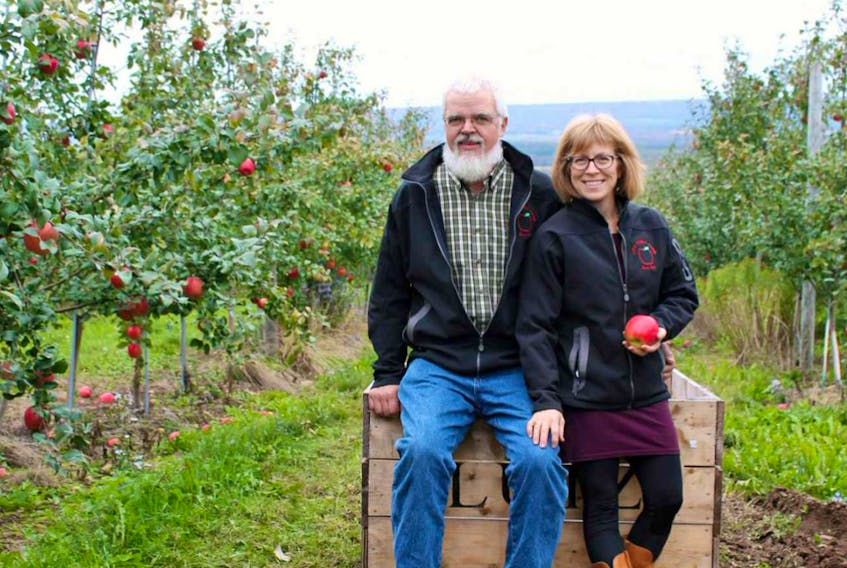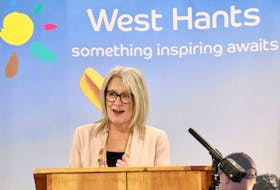TRURO, N.S. — You could say Larry Lutz has been tested to his limits.
His 120 acres of apples and pears were decimated by extreme weather this year. After a cold and wet spring stunted his crop, an August drought and hailstorm, followed by hurricane Dorian, wiped out more than half his yield.
“We’re an optimistic bunch but that was two really serious blows in a row,” said Lutz, whose farm is in Rockland. “We’re thankful to the provincial government that we have the crop insurance program, because if it wasn’t for that, there’d be some who would no longer be in business.”
Lutz joined other farmers to share concerns at the Nova Scotia Federation of Agriculture’s Truro convention, Nov. 28-29. Topics included everything from soil health to transportation.
But neither these measures nor crop insurance can cover lost income, as farmer Dean Manning knows.
He owns about 300 acres near Falmouth. Most of it is cattle pasture, but he also grows crops in cold-frame greenhouses.
His crop yield over the past year was less than 50 per cent of normal. The cold, late spring with a lack of heat and sunlight ruined Manning’s vegetables.
“This is one of the years you put behind you and learn from,” said Manning.
Meantime, he was a month late in putting his cattle out to pasture, because the constant rainfall turned the ground to mush. Kept penned up indoors, the cattle were given surplus feed instead, but Manning has used up nearly his whole supply.
“The government needs to accept the fact that in agriculture, there’s so many risks involved and a lot of them, even if covered by risk-management programs, are probably not time-sensitive and adequate for the extremes we seem to be getting,” said Manning.
For both Manning and Lutz, the solution lies in farmers collaborating with the province to craft an effective agricultural policy that includes decent risk protection.
Manning also wanted to see the government collaborate with local communities in building a better agriculture policy. He said farming is a major investment of time and money and everyone has a stake in its success.
Minister of Agriculture Keith Colwell said farmers need technological support, aggressive marketing for their products and “quality programs in place.”
“Our present system we have isn’t adequate – that simple,” said Colwell.
-
Unlike many of his counterparts across the province, Earltown farmer Joe Piotti has enjoyed a good year.
He owns 200 acres, home to cattle, egg, poultry and pork and 10 acres of Haskap plants.
“For Haskap it’s a very robust plant, it grows in the boreal regions,” said Piotti. “It did relatively well and we still have good demand for our crop. We are still getting very good prices.”
His meat and dairy operations have also enjoyed a successful year. Piotti said he markets his products directly to consumers, rather than through intermediaries.
However, he still wanted the government to give more support to smaller farmers, as well as larger operations.
“We think the true resiliency for both rural communities and agriculture in general is to have a robust, broad and deep agricultural sector,” said Piotti. “That starts with the small- to medium-sized operations.”









